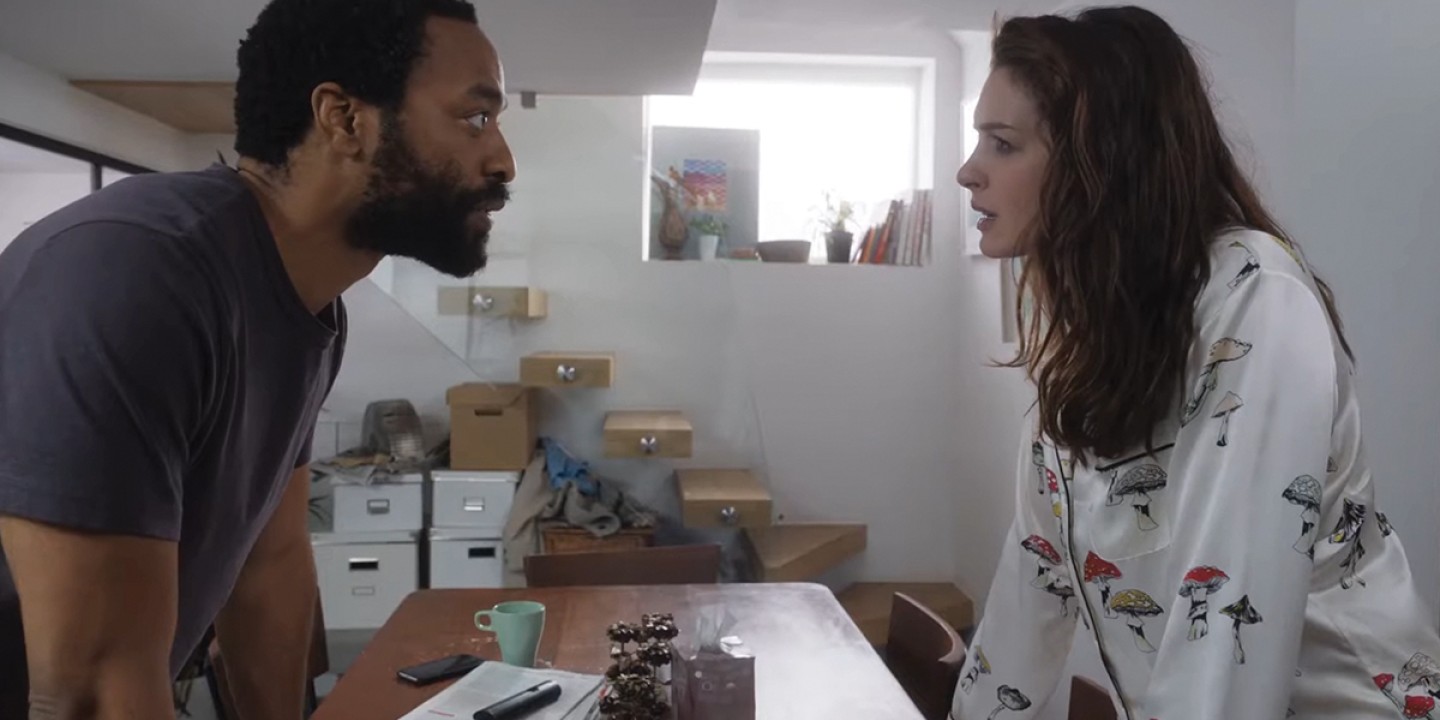The plot twist I wish Locked Down had
It’s a screwball comedy about pandemic life! Pandemic life without kids, that is.

I watched Locked Down (directed by Doug Liman, streaming on HBO Max) during my children’s midwinter break from remote school. It is one of Hollywood’s first attempts to set a movie in the early days of the COVID pandemic. Linda (Anne Hathaway) has just broken up with her longtime partner Paxton (Chiwetel Ejiofor) when London goes into lockdown, and they are forced to spend their first weeks of breakup trapped in the same house.
As I watched, I experienced some nostalgia for those early days of the pandemic: the quest for flour and toilet paper, the 7 p.m. pot banging for first responders. But looking back implies that something is over, that lockdown is a hellscape these two just have to ride out for a couple more weeks. Too soon to joke, I thought. Someone had recently asked me what we would do with our kids during their break this year. I laughed. “Do with them? They will be with us. They are always with us.”
Read our latest issue or browse back issues.
Tellingly, Linda and Paxton don’t have children. Instead, pandemic lockdown serves as a season of intense introspection: Linda realizes she hates her job and the person it forces her to be. Paxton confronts his depression and self-pity for a series of injustices he has suffered. And under the constraints of shared isolation, they examine their relationship—what held it together for so long, why it started to unravel—in an avalanche of witty barbs and stinging monologues.
All the verbal sparring and the lingering “will they get back together?” suspense reminded me of the screwball comedies of the 1930s, with their overly talkative protagonists in zany or improbable situations. Being trapped together during a global pandemic is an improbable situation in its own right, but about halfway through, Locked Down doubles down on zaniness by turning into a full-blown heist movie with disguises, escape routes, and a running gag about Edgar Allan Poe. It doesn’t hold together in tone or plot, but as with its screwball predecessors, wacky antics are a ruse to explore what makes a relationship work.
American philosopher Stanley Cavell grouped many screwball comedies under a rubric he called “comedies of remarriage,” which he argued allowed the viewing public to work through new ideas about love and commitment. A Philadelphia Story is a classic example of what Cavell had in mind: a divorced couple (Katharine Hepburn and Cary Grant) verbally spar, flirt with other people, and eventually get remarried. In most comedies of remarriage the couple doesn’t officially get divorced and remarried, but their relationship undergoes strain and separation (Adam’s Rib) or one person has to break off an unsuitable engagement to someone else in order to find true love (Bringing Up Baby).
As a newly married graduate student years away from parenthood who had just read Cavell, I was enamored of all these movies when I first watched them. I nearly fell off my couch in delight every time Hepburn mounted an impassioned defense of women’s equality. This was part of Cavell’s point: behind the antics and speechifying these movies show a pursuit of love between equals, for whom marriage is a choice not constrained by economic or social demands.
Linda and Paxton inherit the legacy Cavell was analyzing. Paxton is Black; Linda is White. She’s a high-powered executive; he drives a delivery van. They chose love, not social convention, and when their love is on the rocks, they pick up where their screwball progenitors left off: a plot twist forces them to reexamine the strength of that choice.
But I wasn’t reading Cavell when I watched Locked Down. I was reading one of a zillion think pieces about how women are drowning under an ocean of unacknowledged care work so increased by the pandemic that it threatens to flood them out of the workforce for a decade. I was reading analyses of how Black and Brown women bear this burden much more than White women do and how the wealthy have cushioned themselves against the worst of these blows or even gotten richer. I was reading these things while trading shifts with my spouse to teach our fifth-grader how to multiply fractions and convince the first-grader that writing sentences is not a fate worse than death, and this in between that other work called our full-time jobs.
In Cavell’s comedies of remarriage, equality is a spiritual principle, separate from material questions like money, mortgages, or child rearing. Couples might flirt with love that crosses class boundaries, but in the end, their choice of love is cushioned by material comfort. So too Locked Down suggests that Linda and Paxton need financial security before they can consider recommitment. Since staging a heist during a global pandemic is not a universal prescription for love, I found Linda and Paxton an uninspiring update on the genre. In 2021 even Hepburn’s speeches left me wishing for fewer bromides about gender equality and more structural support for all the labor that has traditionally fallen to women.
Imagine it: an estranged couple trades off domestic caregiving duties until they barely remember each other’s names. Instead of long speeches on the values of equal domestic labor or snippy banter about who has folded more socks that week, there is a zany plot twist: their society pays them each a living wage, with ample time off and excellent health insurance! They have access to subsidized high-quality child care! It is hilarious and heartwarming. I’d watch that movie again and again.
A version of this article appears in the print edition under the title “Locked down (without kids).”







